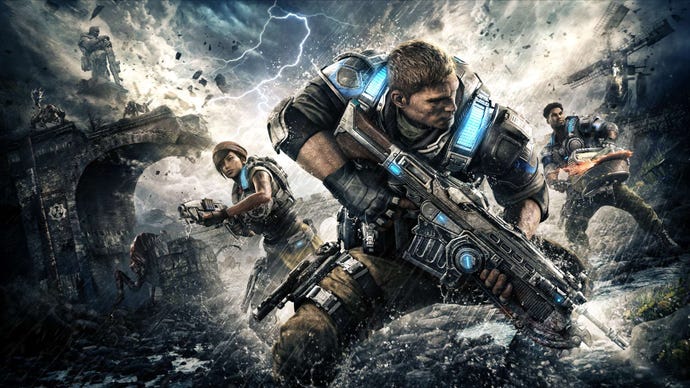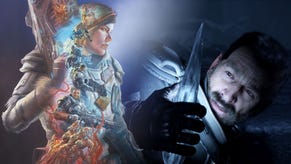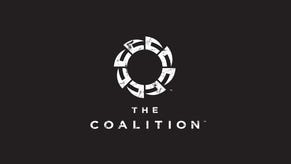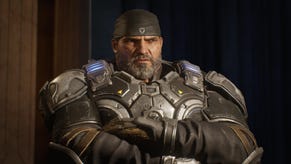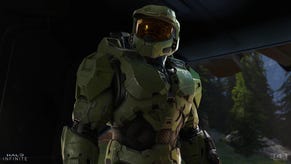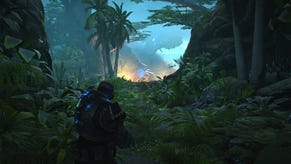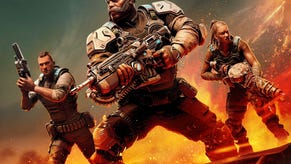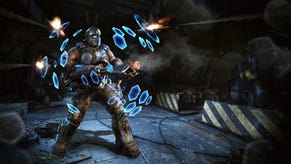The Rod Fergusson Interview: How Gears of War's Studio Head Earned His Reputation as the "Closer"
"They build the games. I just try to give them a path."
This article first appeared on USgamer, a partner publication of VG247. Some content, such as this article, has been migrated to VG247 for posterity after USgamer's closure - but it has not been edited or further vetted by the VG247 team.
Rod Fergusson is known as a "closer." You might recognize his name for his work on the Gears series, but a deeper examination of his credits yields surprises: Counter-Strike. Train Simulator. Even those you won't find on Wikipedia, like 2001's Blood Wake.
Fergusson, the current head of Gears of War studio The Coalition, has come in on a number of projects that were "on fire" and saw them through to the finish line. He reaffirms it when I ask him about the title. For Fergusson, he says there's a clarity that comes about in making final decisions.
"You know, when you start a project, you can go, 'It's red,'" he tells me. "And then the next we can go, 'it's blue.' In the next, we can go, 'it's green.' And we have all this time to change your mind. When you're in the last months, you have to go, 'it's red and we don't have time to change it.'"
In the finished product, there is a feeling of seeing something polished, tightened up, and put out into the world. At PAX South 2020, during his keynote address, Fergusson shared an image of himself at a games store next to one of his first shipped products: Microsoft Train Simulator.
"If given a choice between five years of no products coming out, and five years of five products coming out, I'll pick the five years of five products," Fergusson says. "I like shipping. I like the process of shipping. I like the process of creating."
First Steps
Fergusson has followed Gears of War for most of its life-span. He started his career at Microsoft early, working on Microsoft Train Simulator and the original Xbox's port of Counter-Strike in the early 2000s before moving on to Epic Games. There, he would work on the entire Gears of War series before departing for Irrational Games to work on BioShock Infinite. In 2014, Fergusson returned to Microsoft to see Black Tusk become The Coalition, and went on to helm the reboot of the Gears franchise.
Though Fergusson says he's always played games, finding a way into the industry was a different story. Growing up in Canada, he would make a MUD—an early multiplayer game, often text-based—early in life to understand the process, but the games industry always felt a little out of reach.
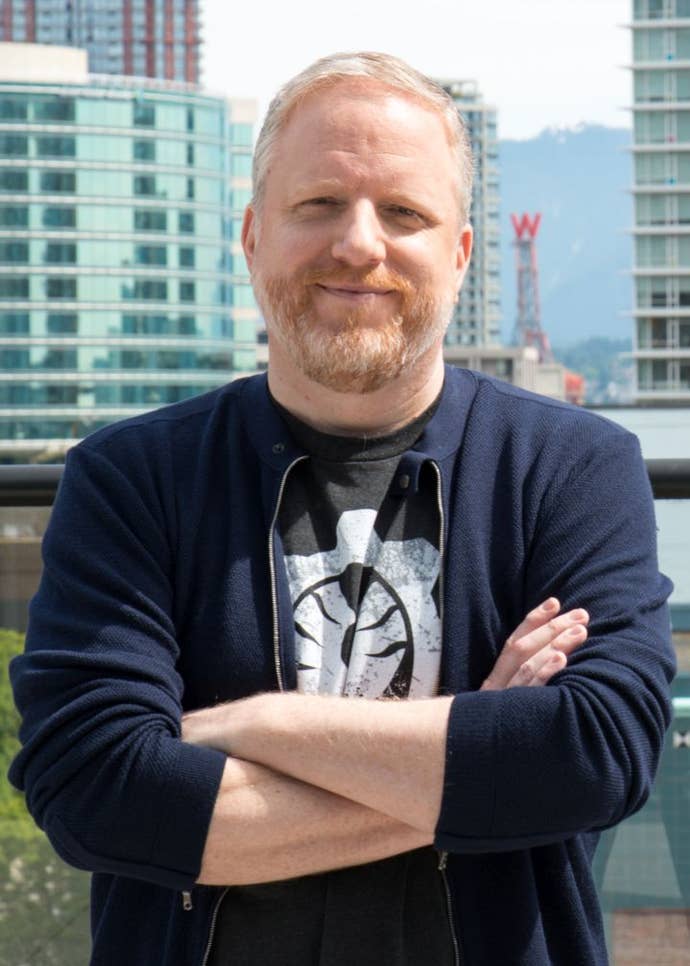
"It felt like a thing that happened in the [United States], that happened in California," Fergusson says. "It didn't feel like a thing that happened in Ontario, Canada."
After joining Microsoft, he soon found an opportunity. An opening for a role opened up and Shannon Loftis, now studio head at World's Edge and working on Age of Empires, sat Fergusson down in front of a screen and asked him to point out what was wrong.
"I was never a UI designer or UX designer, but I was a gamer," Fergusson says. He might not have had the exact technical expertise, but he could point out inconsistencies in object weight or position due to his experience playing games. "It was the first time I've ever been in an interview where we're about halfway through, and she said, 'Okay, I'm going to recommend you for the job. Now let's just chat.'"
Eventually, this led to working on Microsoft Train Simulator, where Fergusson fell for... trains, as it turns out. He tells me he can still spot certain models to this day, to the chagrin of his wife. But he found a lot of work to do, and learning to be had, in helping wherever possible. He'd work on the air brake ratios, tune textures, and chip away at localization text. As a producer, especially on later projects where he was going into another shop to assist development, he needed to prove he was on their side.
"You have to kind of win them over by showing value," Fergusson says. "And so I would just be like, 'what can I do? How can I help?' Once you get that relationship and trust built, then you can actually be successful."
Big Gears Keep On Turning
Fergusson would go on to help bring Counter-Strike to the original Xbox, a project that came together in months. As Fergusson tells it, he originally pitched an idea for Counter-Strike so outlandish, he thought it would get the project canned; Bonnie Ross, now the head of 343 Industries, gave it a green light. In about four-to-six months, Counter-Strike for Xbox came together.
In 2005, Fergusson was put on Gears of War to assist Epic Games from the Microsoft side. It was "on fire." That year, he left Microsoft to join Epic Games full-time and see the project through.
At the time, Epic Games was a much smaller company than the comparatively massive Microsoft. It was a jump that would end up bringing Fergusson into a series he would eventually lead, but at the time, it was a surprising decision to leave a company with 63,000 employees for another with 63, and a pay cut at that. But it was a project Fergusson believed in.
"It wasn't just building games," Fergusson says. "It wasn't just making something to make something. I was making something I love and making something I would want to play, and getting to do it with people who were sort of at the top of the industry."
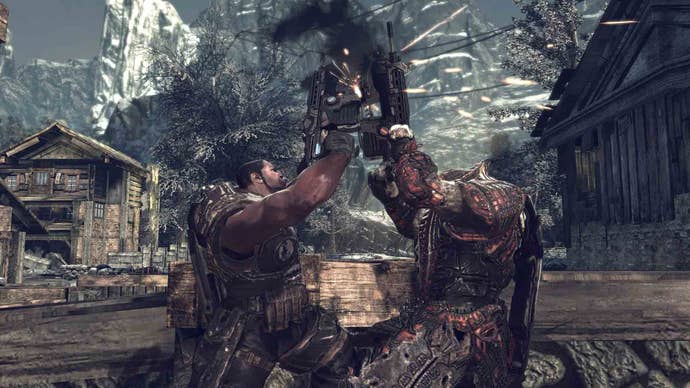
The years would go on, and Epic would launch two more games in the Gears of War series, as well as its side-story Judgment. Fergusson climbed the ranks all the while, from producer to senior producer, director of production, and executive producer. Epic changed as well.
Epic Games veered into new territories like mobile gaming with Infinity Blade. Soon enough, Fergusson felt it was time for another leap; this time, to Irrational Games, where the studio was starting to see the finish line of a game called BioShock Infinite.
He was heralded as a "closer" for Infinite at the time, brought in to see it through to the end. As Fergusson tells me, Infinite was validating because it proved he wasn't a "one-trick pony."
Meanwhile in Seattle, a move was in the works. Fergusson says he wasn't involved in the deal, but he was soon approached with the opportunity to take the helm on Gears again: this time as studio head at the soon-to-be Coalition, once again under Microsoft.
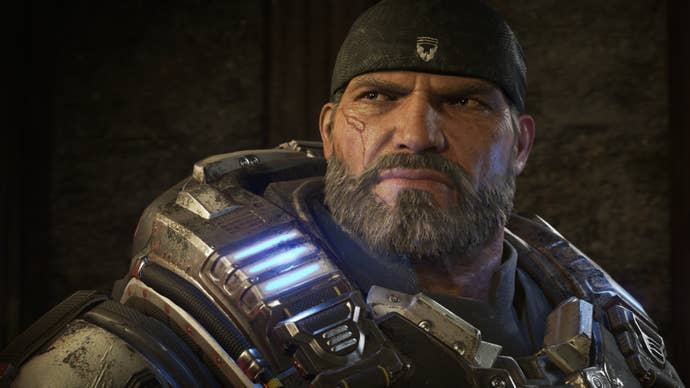
Re-Greasing the Gears
Fergusson uses a couple different analogies to describe the old Gears of War and the new Gears. The first is the dichotomy between the Tim Burton Batman movies and the Nolan series; the second, Star Trek and The Next Generation. Both aren't one-to-one, but they were inspirations for how the Gears series could reinvent itself with Gears of War 4: telling a more contemporary, modern story.
"I was like, 'I wish we could do that to Gears,' which is take it from this sort of Tim Burton-esque cartoon to this Christopher Nolan kind of more modern way of storytelling. Having more grays, instead of just black and white. Having more nuance and more subtlety. And that's what we tried to do with [Gears 4 and 5]."
At the center of this is Kait Diaz, a new protagonist for the series. The Gears franchise was starting over, even with Black Tusk Studios renaming itself to The Coalition as part of Microsoft's internal studios. How much of the past should remain in Gears?
At one point, Fergusson tells me, there was a discussion about whether Gears of War 4 should be on the same planet, Sera. The decision to keep the world alive didn't just allow Marcus, Baird, and Cole to make cameo appearances; it actually opened up new ways to tell stories with those characters. There were unanswered questions still from the original Gears trilogy, and keeping them around—while centering the action on Kait, JD, and Del—meant some of those questions could finally get some answers. With established characters, there's a lot of backstory to grapple with, but with a new set of heroes, there was "raw material for transformation," and a medium for Gears' newfound approach to storytelling.
"We wanted to take these 20-somethings and have them be our protagonists so that over the games that we're going to go build, we can start to mess with them and change them," Fergusson says. "And that's what you see in Gears 5 mostly, is the transformation of JD and the transformation of Kait. These things are happening over the course of the game because the experiences they're having are just something you couldn't do in the original trilogy."
Though it was a new venture, The Coalition still took lessons from the past. Fergusson tells me that to get ready for Gears of War 4, the team got to work remastering the first Gears of War. It was like a crash-course in design; the studio learned about the series' approach to cover, encounters, and general design through refining the blueprint.
But strangely enough, for an M-rated game, one of Gears 5's most radical departures was the way it approached accessibility. Much of Fergusson's keynote at PAX South 2020 centered on the team's efforts to open Gears up to more players, both newcomers and those who might have trouble playing the game otherwise. Elements like distinguishing who was speaking in subtitles, font options, and button remapping all made Gears 5, a generally agreed-upon gorefest, a surprisingly approachable game.
It came about from a discussion about Xbox Game Pass, Microsoft's service that would soon let subscribers jump in and play Gears of War. This meant a number of players who might never otherwise try the series would be joining, and The Coalition had to think about what that experience was like. It led to a summit, an "inclusive design sprint," where the studio heard from various players and subject experts.
The Coalition came away with several pillars for making Gears 5 more inclusive. The aforementioned font options and new cues helped players know when battles were over. 19 flags for different LGBTQ pride groups allowed players to express themselves in-game. The design of Jack, a helper robot who healed and provided support instead of doing all the "pixel hunting" shooting, let even more players feel like part of the team.
"There needs to be an accessibility baseline," Fergusson says. "There needs to be a bar. [...] So if we can put out there a thing that says this is what good for right now looks like, the challenge now I put out is, 'do better.'"
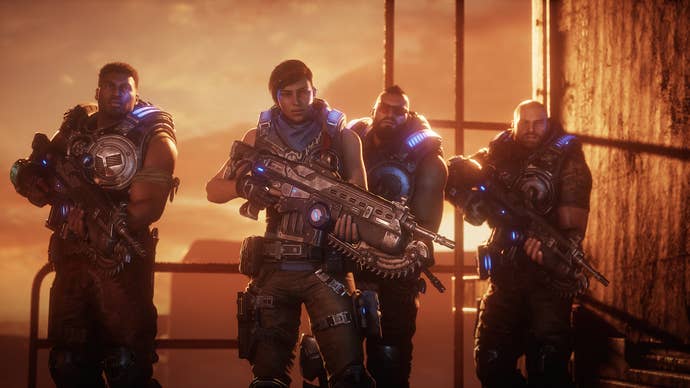
It Takes a Village
While Fergusson tells me Game Pass hasn't changed too much about the overt presentation of the Gears franchise, it has given The Coalition a new mindset moving forward.
"Game Pass changes in the sense of, you have to think about who's coming to your game now," Fergusson says. "Like before, it was the tried-and-true or the very experienced. Now, the fact that anybody who has Game Pass could come in, that changed how we think about design."
As for questions of how the "closer" has seen the actual art of closing change over the course of years, crunch is still a factor. Fergusson recalls 22-hour days working on the first Gears of War, though those stand in stark contrast to today, where he says Gears 5 was the least crunch he's had on a project. It does still exist, but Fergusson says the focus now is on sustainability.
"I think the notion of zero crunch, that no one will ever work extra effort to get a game out the door, if it has any sort of ambition and desire to be something great, I think that's impossible," Fergusson says. "So what you have to recognize is, okay, if there's going to be extra effort, how do you manage it in a way that's sustainable and doesn't destroy your team, have a human cost or what have you."
The goal, he says, is to get it where you can to zero, even if it seems unachievable. But as games have grown, he's seen the studios he brings across the finish line; where one person might have once been a jack-of-all-trades, there are now five or six people doing more specific tasks, a necessary expansion as fidelity and ambition grows in gaming.
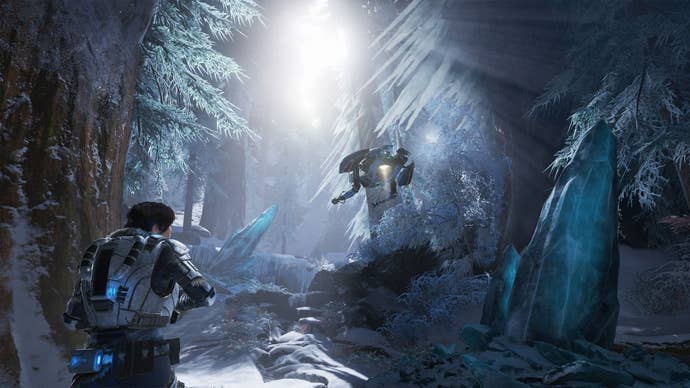
So while Fergusson enjoys being the closer, the guy who ships, he's also made a point to recognize those who make it happen. For Gears 5, the team handed out "challenge coins," a tradition often seen in military outfits to recognize membership or achievement, as "ship gifts." They were a way to recognize each developer's contribution, and as tradition mandates, they're given via handshake.
Over the course of several days, Fergusson shook the hand of everyone who worked on Gears 5. He recalled this moment when I asked him about a moment he's cherished in shipping so many games over the years, and it's representative of his approach.
"I don't code. I don't draw, you know," Fergusson says. "I don't physically put anything into the game. I help people organize and I help people think about things differently. I help people make decisions. And I help people focus and prioritize. I'm a facilitator. And so if it wasn't there to begin with, it wouldn't have been there at the end."
He's not as involved with the nitty-gritty as he used to be. He's currently overseeing the expansion of the Gears franchise, not just into a rebooted saga, but into new territory as Gears Tactics takes a turn at fighting the Locust horde. He might be "the closer," but there are a lot of people behind the closer.
"The team at Epic, and the team at Irrational, and the team at The Coalition, they build the games," Fergusson says. "I just try to give them a path."
